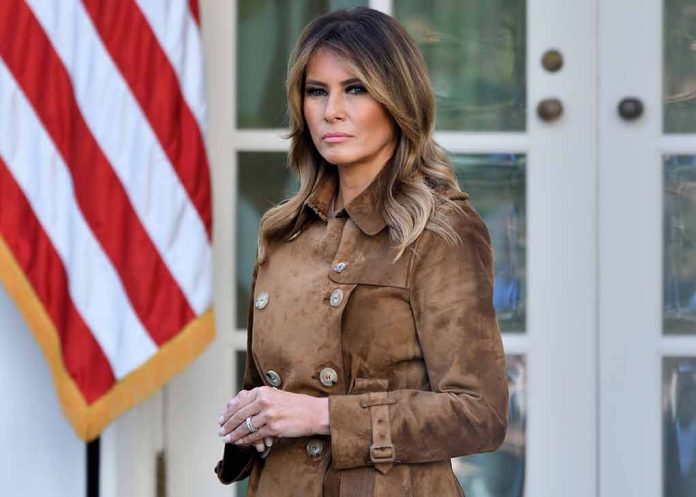
Melania Trump’s decision to skip her White House introductory meeting with Jill Biden raises questions amid growing political tensions.
At a Glance
- Melania Trump declined an invitation to meet First Lady Jill Biden, citing the FBI raid at Mar-a-Lago.
- The FBI raid aimed to investigate classified documents stored at the Trump property.
- Traditionally, the outgoing First Lady hosts her successor for tea at the White House.
- Melania Trump has previously participated in this tradition with Michelle Obama in 2016.
- President-elect Donald Trump met with President Joe Biden in the Oval Office Wednesday.
Political Fallout from Mar-a-Lago Raid
Melania Trump turned down the opportunity to meet First Lady Jill Biden at the White House, referencing the FBI raid on Mar-a-Lago as a reason. This raid, part of a federal investigation into classified documents, has exacerbated tensions between the Trump and Biden camps. According to sources, Melania’s decision reflects her displeasure with the Biden administration’s role in authorizing the raid that invaded her family’s privacy. An anonymous source familiar with Melania’s decision remarked, “She ain’t going. Jill Biden’s husband authorized the FBI snooping through her underwear drawer. The Bidens are disgusting.”
Melania’s withdrawal from the meeting emerged while President-elect Donald Trump met with President Joe Biden to ensure a seamless power transition. The FBI’s investigation included searching Melania’s wardrobe and her son Barron’s rooms, actions that led to significant upset. Melania expressed her distaste with these events, sharing, “I saw unpleasant stuff that nobody wants to see. And you get angry because, you know, nobody should be putting up with that kind of stuff.”
Tradition and Transition
The choice by Melania Trump not to follow the tradition of hosting tea with her successor is notable. In 2016, she met with Michelle Obama in an amicable exchange following Donald Trump’s election victory. This customary practice aims to smooth the transition between administrations and foster goodwill between the families. The absence of such a meeting now signals continued friction between the outgoing and incoming First Families. After Trump’s 2020 election loss, the lack of invitation extended from the Trumps to the Bidens was another departure from historical norms.
Observers note that the cancellation of the meeting contributes to an intensifying narrative of rivalry and perceived slights. Despite Donald Trump meeting with Joe Biden, questions remain as to how the bipartisan tradition of cooperation may continue in the face of political and personal grievances.
Conclusion
The absence of Melania Trump is a reflection of the current discord within American politics. As Donald Trump takes steps to cement a smooth transition with President Joe Biden at the White House, Melania’s action represents a more personal form of protest against perceived injustices. Both the raid on their home and Donald Trump’s ongoing legal battles continue to influence public discourse, leaving space for speculation around future interactions between the two families.









